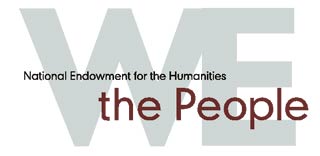Biographies
Francis Bernard
1712 - 1779
 Francis Bernard was born to Anglican minister Francis Bernard and Margery Winlowe in Berkshire, England. After serving in a variety of legal positions in Britain, Bernard was appointed governor of New Jersey in 1758, and governor of Massachusetts in 1760. Although critical of British colonial policies, Bernard felt it important to uphold unpopular legislation such as the Stamp Act of 1765. In 1768, he asked the Massachusetts General Court to rescind a Circular Letter, which encouraged other colonial assemblies to oppose the Townshend Acts. When the legislature refused, he dissolved the Assembly and suggested to his superiors that troops be sent to Boston to enforce imperial legislation. In April 1769, several of Bernard's letters to Lord Hillsborough, in which Bernard criticized Boston and the General Court for refusing to obey the Quartering Act of 1766, were published in a pamphlet and distributed in Boston. His support virtually extinguished in Massachusetts, Bernard was recalled to London, and left Boston on 1 August 1769. Upon returning to Britain, he served nominally as customs commissioner for Ireland until his retirement from public service in 1774.
Francis Bernard was born to Anglican minister Francis Bernard and Margery Winlowe in Berkshire, England. After serving in a variety of legal positions in Britain, Bernard was appointed governor of New Jersey in 1758, and governor of Massachusetts in 1760. Although critical of British colonial policies, Bernard felt it important to uphold unpopular legislation such as the Stamp Act of 1765. In 1768, he asked the Massachusetts General Court to rescind a Circular Letter, which encouraged other colonial assemblies to oppose the Townshend Acts. When the legislature refused, he dissolved the Assembly and suggested to his superiors that troops be sent to Boston to enforce imperial legislation. In April 1769, several of Bernard's letters to Lord Hillsborough, in which Bernard criticized Boston and the General Court for refusing to obey the Quartering Act of 1766, were published in a pamphlet and distributed in Boston. His support virtually extinguished in Massachusetts, Bernard was recalled to London, and left Boston on 1 August 1769. Upon returning to Britain, he served nominally as customs commissioner for Ireland until his retirement from public service in 1774.



